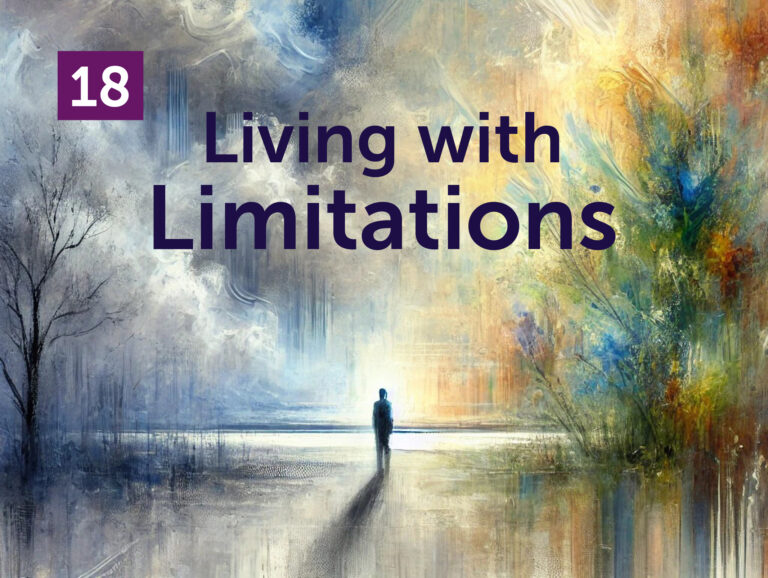Simon
We’ve been talking for about an hour. Which is gonna give us more than enough material to reflect on. So Charlotte, is there anything else that you feel that you really need to say?
Charlotte
Limits. There’s a disjoint between what we want to do theologically with limits theology, and what needs to be done sociologically with it.
And I think people need to get used to the idea that we can hold something to be theologically true that sociologically doesn’t work. And that neither undermines the other.
The limits theology I really like begins with the idea of saying we all have limits.
For example – on Sunday morning I challenged people at a church to think of themselves as disabled. I was talking to glasses wearers and I said, so 200 years ago, you were disabled. How do you feel about that? And we really interrogated that language of disability and how we feel about ourselves. It’s fine to say that everybody has limits. And theologically, it’s really helpful. To investigate that and push it, and to do it as a thought experiment based on the fact that many people are limited.
The difficulty with limits theology in a practical sense however is it can erase the very real difficulties that disabled people have that non disabled people don’t. If I say well, everybody’s limited and so we’re all just the same, the reality is that no, actually my friend can’t get into a building, and I can’t work 40 hours a week and I can’t think properly. My limits need action to bring equity into church life.
We don’t want non disabled people to be let off the hook by thinking we’re the same because they are limited if they can’t run a marathon.
So I think we’ve got to be a bit careful in churches that we do both things together: that we use a limits theology to provoke a universal design principle where we help everybody be their fullest, rather than absolving us all of the responsibility of not having to do certain things because ‘everyone’s disabled’. We must never duck the political challenge or minimise the structural needs of disabled people.
And these are always the flip sides to any theology of disability. It gets used to meet the needs of non-disabled people and make them feel better instead of acting for the liberation of the disabled. So, in the past, theology made disabled people a ‘lesson in humility’ to others so then we didn’t have to help you get in the building because your struggle is building character. You know, when we’re not the group who are excluded we’re really good at taking a theology and using it to absolve our inner inaction.
I really want to push that kind of tension in social model and limits theology. Do you know what? I’m disabled because the world doesn’t work for me – and I am whole – and at the same time I have needs. I have support needs, I have access needs, and politically and sociologically I need support. I think disability brings that tension out into the everyday world, which is a good thing. But we need to be a little careful we don’t erase disabled people and their struggle with a theology that just makes us the same as others and absolves the church, because structurally our lives are not all the same.
Do you have any comments or questions? You can contact us here: hello@northumbrian.org


